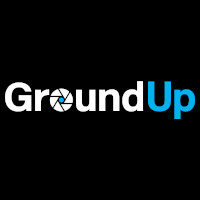Fishers in Port Nolloth leaving in the early morning. Archive photo: Ashraf Hendricks.
Unhappiness over fisheries department’s boat allocations
By Liezl Human
Small-scale fishers are threatening court action over the number of boats they have been allocated for line-fishing.
About 12,000 recognised small-scale fishers have been allocated 377 vessels between them. The commercial sector has been allocated 378 vessels.
The fisheries department says the allocation is based on equitable distribution guided by scientific recommendations.
But the small-scale fishers say the small number of boats allocated is putting their livelihoods at risk.
Small-scale fishers are threatening to take the Department of Forestry, Fisheries, and the Environment (DFFE) to court over the number of boats allocated to them to catch linefish.
On 4 March, the department announced that 377 vessels had been allocated. Previously, 300 were allocated under the interim relief for small fishers, which ended last year, when the department finalised the recognition of small-scale fishing rights. But small fishers say 377 is far from enough for the 12,000 recognised small-scale fishers.
A total of 359 of 377 boats have been allocated for fishers from Port Nolloth to Cape Infanta. The number of vessels for the Aukotowa cooperative in Port Nolloth was cut from 15 to five. The cooperative had applied for 18. In Paternoster, the allocation for small-scale fishers dropped from 32 to 13. They had applied for 23 boats. Vredenburg small-scale fishers’ allocation has gone from 12 to five. They had applied for 11.
“The fishers are angry. It is putting our livelihoods in danger,” said Walter Steenkamp, chair of the Aukotowa cooperative.
In the Eastern Cape, where there are 5,335 individual fishers in 78 small-scale fishing communities, 12 boats were allocated according to the department’s public notice of 4 March 2024.
KwaZulu-Natal, which has 2,182 fishers in 35 cooperatives, was allocated six boats.
Wilmien Wicomb, of the Legal Resources Centre (LRC), which is representing the fishers, wrote to the department on 15 March requesting that the allocations be reconsidered and that an “urgent interim arrangement” be discussed in a meeting.
If the department failed to do this, the fishers would “approach the High Court for appropriate relief”.
Wicomb said that while the 300 boats allocated under the interim relief catered for about 2,000 fishers, the 377 boats must now accommodate about 270 cooperatives, with 12,000 fishers.
Wicomb said the department “ignored the fact that the pie is now being cut into vastly more pieces”. The numbers of vessels are “not nearly enough”.
“The idea was that the small-scale policy would increase recognition, not decrease it.”
“How many boats you’re allowed, that’s your [fishing] quota.” Fishers are not given quotas for linefish, but are given a boat allocation known as Total Allowable Effort or TAE.
Wicomb said many of the boats are owned by the fishers themselves.
“Now … the cooperatives have to decide who’s in and who’s out … You can just imagine the kind of conflict that creates,” she said.
Wicomb said the department had known for years “that this day would come where they would have to give enough to small-scale”.
When the commercial linefish was allocated last year, they allowed 100 new entrants, she said.
“They had no reason to increase the commercial when they knew small-scale was coming,” said Wicomb.
Wicomb said that the department had also failed to consider the various sizes of boats used by communities. While the number of vessels is based on a standard seven-crew vessel, many small-scale fishers use two-person and four-person vessels.
Masifundise Development Trust, a fishers advocacy group, said linefish are “a key species supporting the livelihoods and food security of fishing communities year-round”.
The trust criticised the department for allocating “significantly less” vessels.
In March, the department responded that the allocation “was based on equitable distribution and guided by scientific recommendations”.
“The commercial sector has been allocated 378 standard vessels, while the small-scale fishing sector has been allocated 377 standard vessels,” it said.
Despite repeated promises the department has not responded to GroundUp.
In a media statement on 13 March, Minister Barbara Creecy said that a Consultative Advisory Forum would be set up to conduct a study during the 2024/25 fishing season “to advise me on strategies and measures that can be put in place to ensure the sustainable management of the resource while also enabling equitable and fair access between the resource users”.






